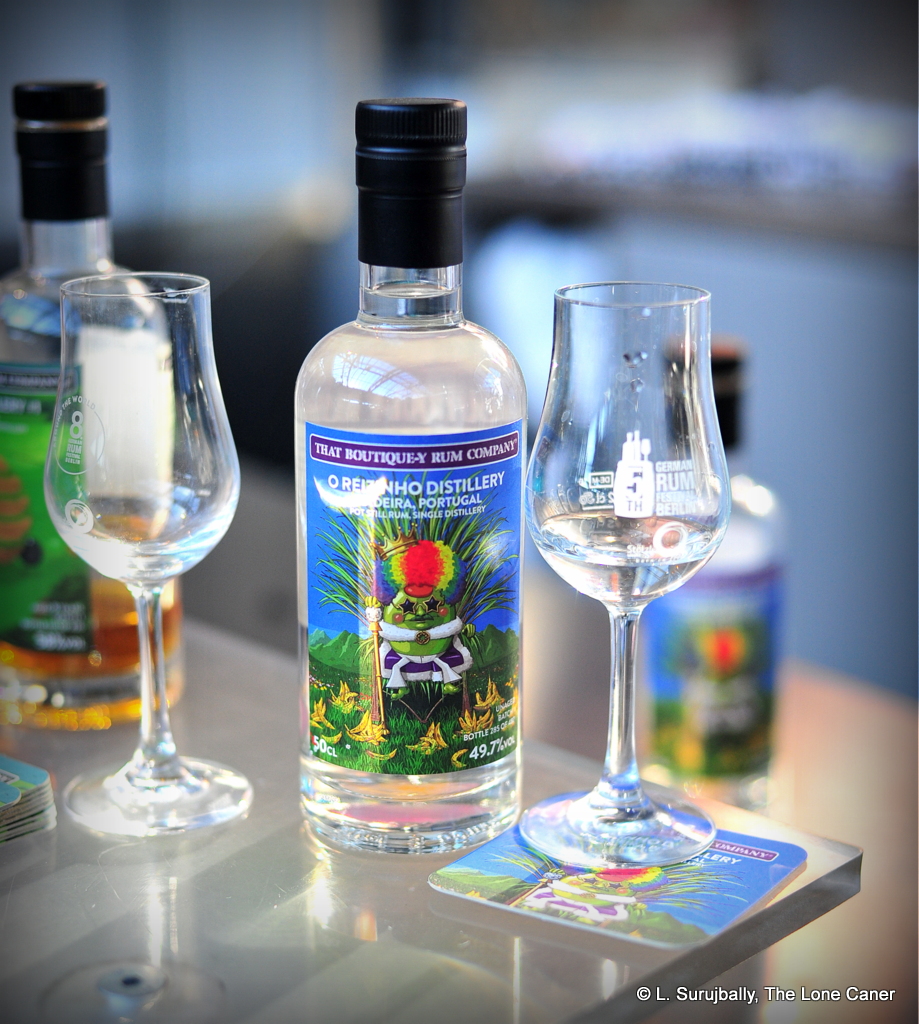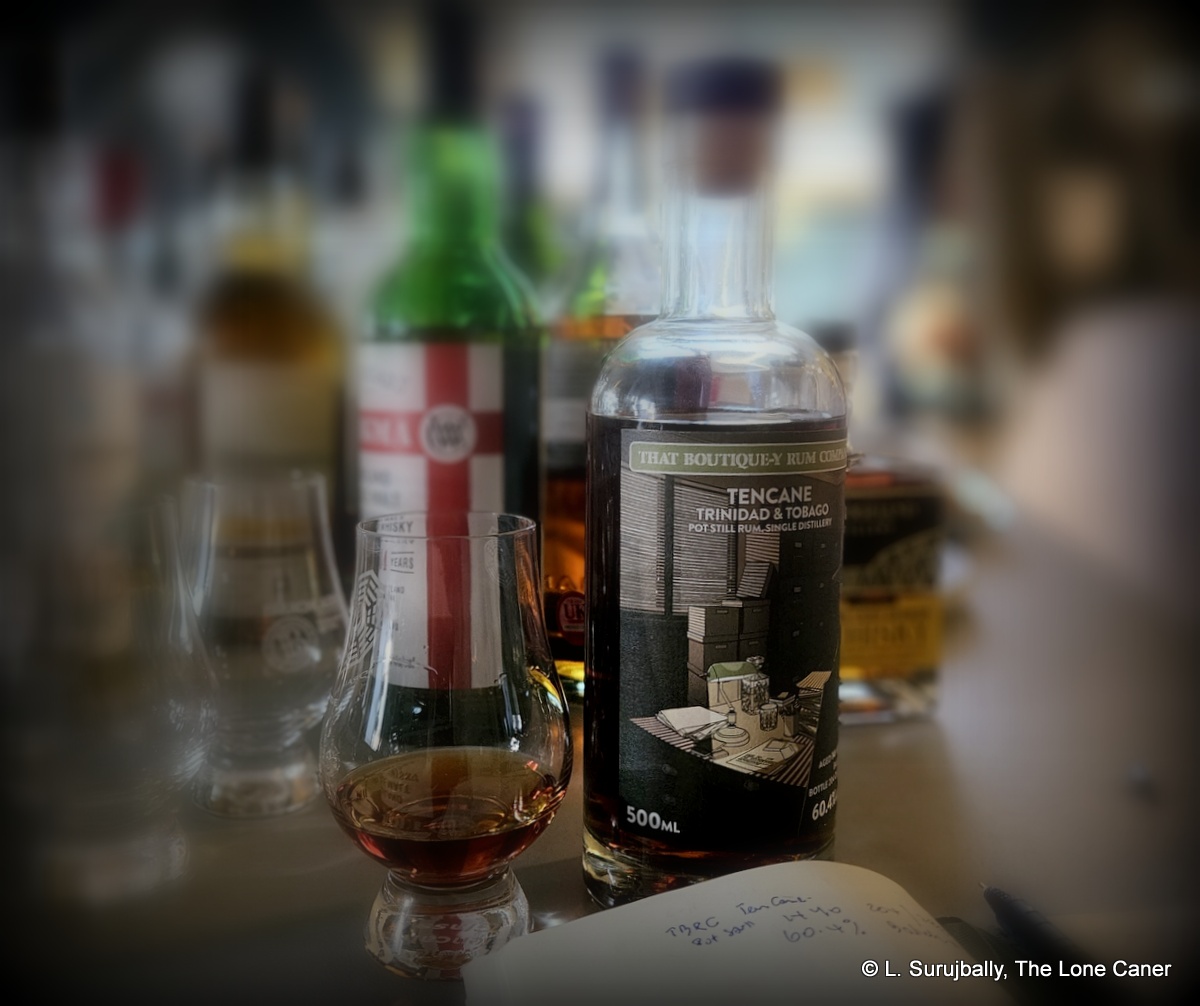
Ten Cane rums don’t seem to be disappearing from the indie bottling scene any time soon, given the variety of small companies who put out small bottling runs from the now closed LVMH-created Trini-located micro-distillery every year or two. We have seen expressions from The Duchess, TBRC, Rom Deluxe, Rum Artesanal, Kill Devil, Berlin’s Rum Club, Valinche & Mallet, BBR, Cave Guldive, L’Espirit, Holmes Cay, Rum Shark, Whisky & Rum, Familia Ricci, Blackadder, and, oh, quite a few others, some more than once. Here, from That Boutique-y Rum Company from England, we have an interesting one that was made in 2012, is a nice rounded fourteen years old…and a serious 60.4% ABV.
For those new to “Ten Cane” rums, they were made in Trinidad, in a small distillery based in Usine St. Madeleine, using two Charentais cognac copper pot stills brought over by the fashion house of LVMH (the MH part of it, at any rate) who originated the brand. The idea was to make cane juice rum sourced from local producers in the agricole style, and certainly the rums that were produced are quite different from the regular run-of-the-mill Angostura blends, or even today’s TDL single barrel expressions which are beginning to make a splash.
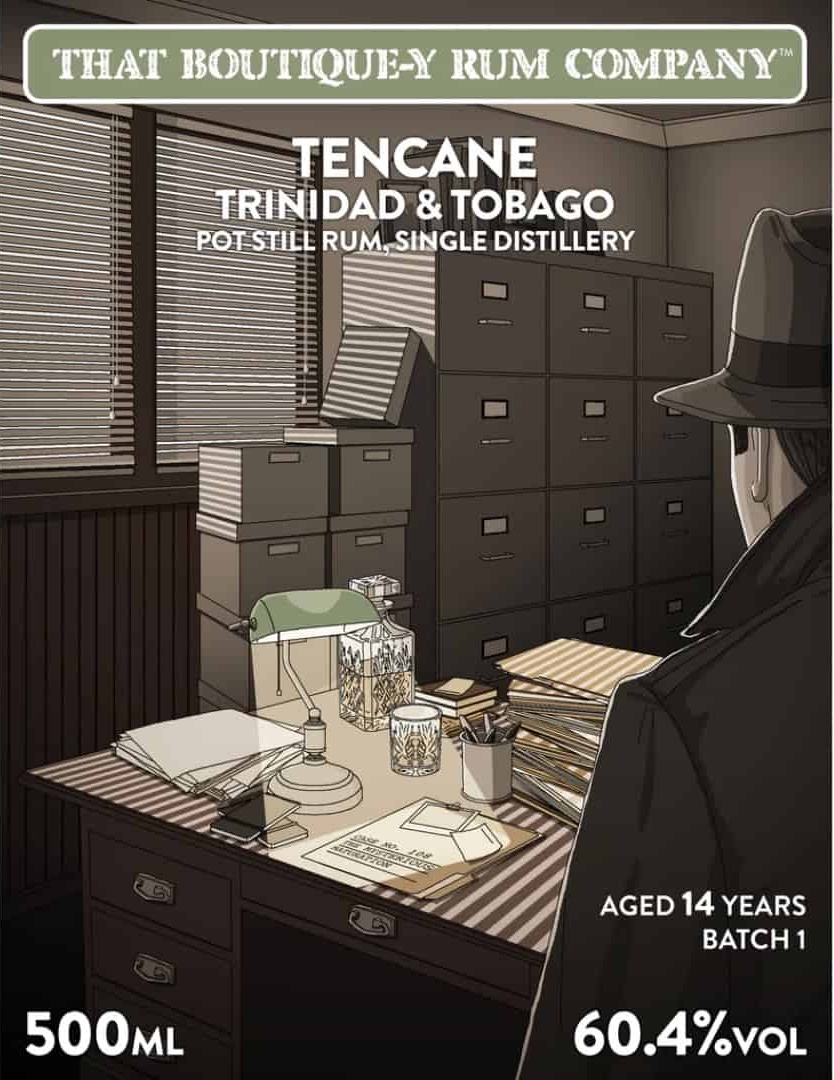 Those I’ve tried are damned good rums, as this one so elegantly demonstrates. The nose, oddly enough, is remarkably dark and tannic, with the oak influences quite clear (though thankfully not excessive), mixing it up with caramel, toffee, vanilla, and the tart aroma of mauby bark and cinnamon. A whisky anorak next to me remarked there were some deep oily notes, almost savoury aspects to it (which he really liked), and while I think he was reaching myself, we both agreed there were nice notes of black ripe cherries, ripe oranges and traces of brown sugar, especially on a fresh pour.
Those I’ve tried are damned good rums, as this one so elegantly demonstrates. The nose, oddly enough, is remarkably dark and tannic, with the oak influences quite clear (though thankfully not excessive), mixing it up with caramel, toffee, vanilla, and the tart aroma of mauby bark and cinnamon. A whisky anorak next to me remarked there were some deep oily notes, almost savoury aspects to it (which he really liked), and while I think he was reaching myself, we both agreed there were nice notes of black ripe cherries, ripe oranges and traces of brown sugar, especially on a fresh pour.
The palate shows why we should approach aged cane juice rums — in particular the older ones — with some caution. Fresh, unaged white agricoles are as close to true terroire as we can get in our world, and that’s part of their attraction; yet the moment they are put into a barrel, some of that is lost as the interaction with the wood mellows the hot fierceness of the initial distillate. The taste of this fourteen year old rum shows less juice and more cask, so to speak. There are well integrated notes of leather, smoke, vanilla and caramel tastes, then black ripe cherries, some pineapple and citrus, dates, figs and pomegranates, even some coca cola and aromatic damp tobacco. And stale coffee grounds and wet ashes, which are thankfully faint. The finish is fine – long, as one would expect from something with such a jacked up proof, and giving more of the same – dried fruits, black cake, tobacco, citrus, and not much else – but that’s quite e nough, I assure you.
This is quite a good piece fo work.It goes down remarkably easily, and doesn’t punish a deep swig. The flavours mesh well and are deep and tasty, and while the connoisseur might not find mich that is new, it is clearly separable from the more mass market offerings from Angostura proper, and you would never mistake this for a Caroni, of course. Had the owning company persevered and held on a for a few more years, I think that we would have seen a unique and different style of rum making emerge from Trinidad.
Alas, Ten Cane is no more: after less than ten years, the costs, the financial environment, other priorities, lower than expected sales or simple lack of interest, resulted in the company folding its tents in 2015, mothballing the stills and walking away from the venture. All we have left now, is the various expressions that small independent are issuing: and once those are gone, well, maybe it’s going to be another Caroni, or maybe just another idea ahead of its time that few will remember ten years from now.
And yet, we keep seeing them, in small shelves in various stores, online, and in occasional comments on social media by drinkers who recall the rum with fondness. I’m one of them, and I think that the brand, long after its dissolution, will one day be seen as a worth entry to the rum canon. This Ten Cane rum from TBRC shows why that is the case and it’s a shame that one day, we won’t get any more.
(#1117)(86/100) ⭐⭐⭐⭐
Other notes
- Video recap link
- I get really impatient when modern rum outfits that are part of yet bigger companies don’t update their web pages with details of bottlings past or present – we’re past the stage of the internet being a new thing or some sort of fad that needs the bare minimum. TBRC’s website has no entry for this rum in the product page, it doesn’t show up on a search on the site… and yet it does exist in a blog post featuring “TBRC at the movies”. Which is fine, except that if you didn’t know it was there, you wouldn’t look for it, now, would you?
- The label, done by computer artist Jim’ll Paint It refers to classic film noir: the washed out colours cut through by night lights seeping through the blinds, the hat, the trench coat, the weary gumshoe who talks tough and cracks wise… unofficially, it’s all Bogie as Philip Marlowe and “The Big Sleep”, but you don’t need to know that to appreciate the design,even if it has little if anything to do with rum.
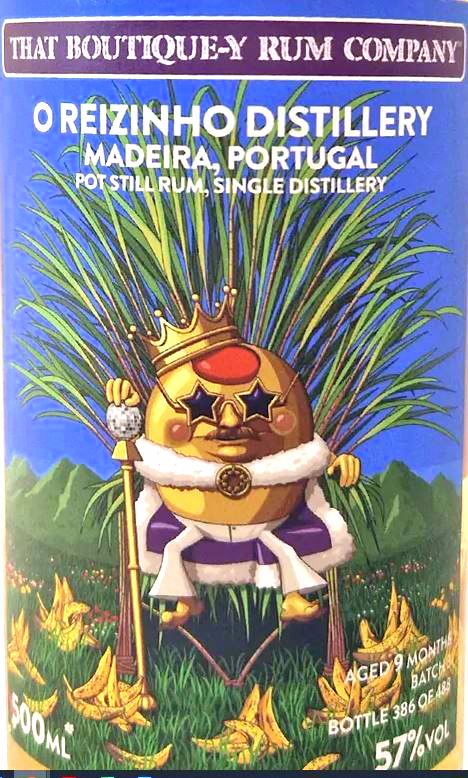
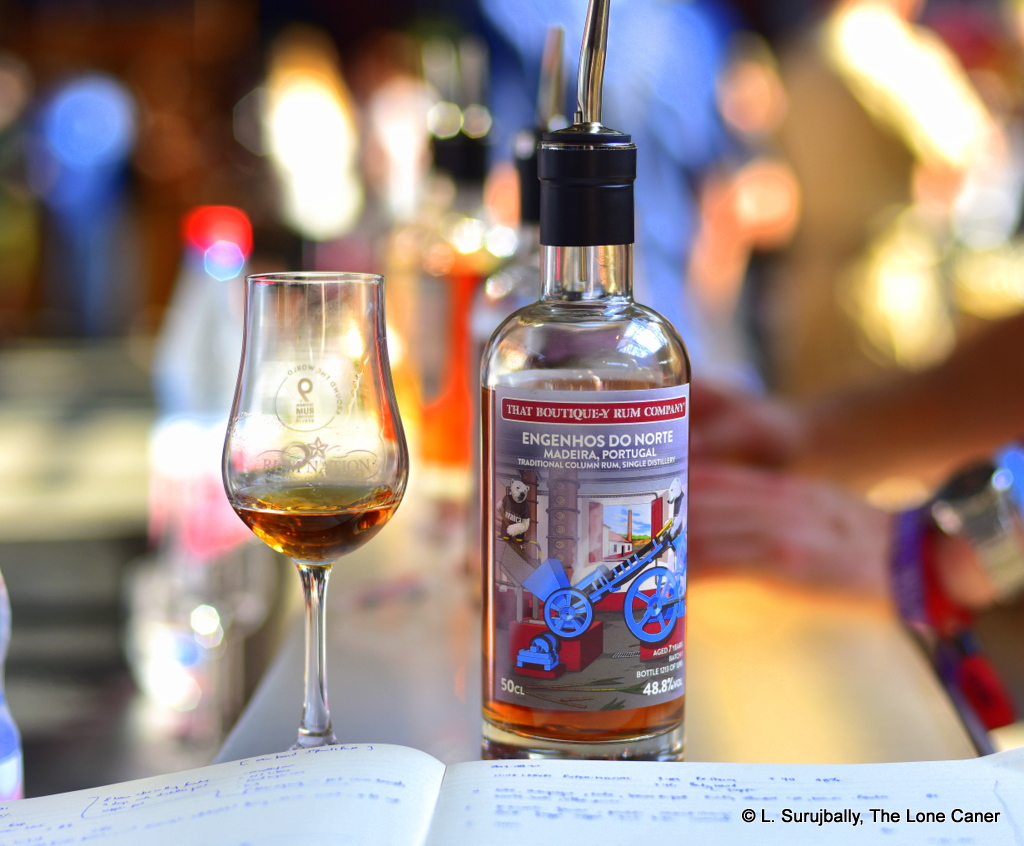
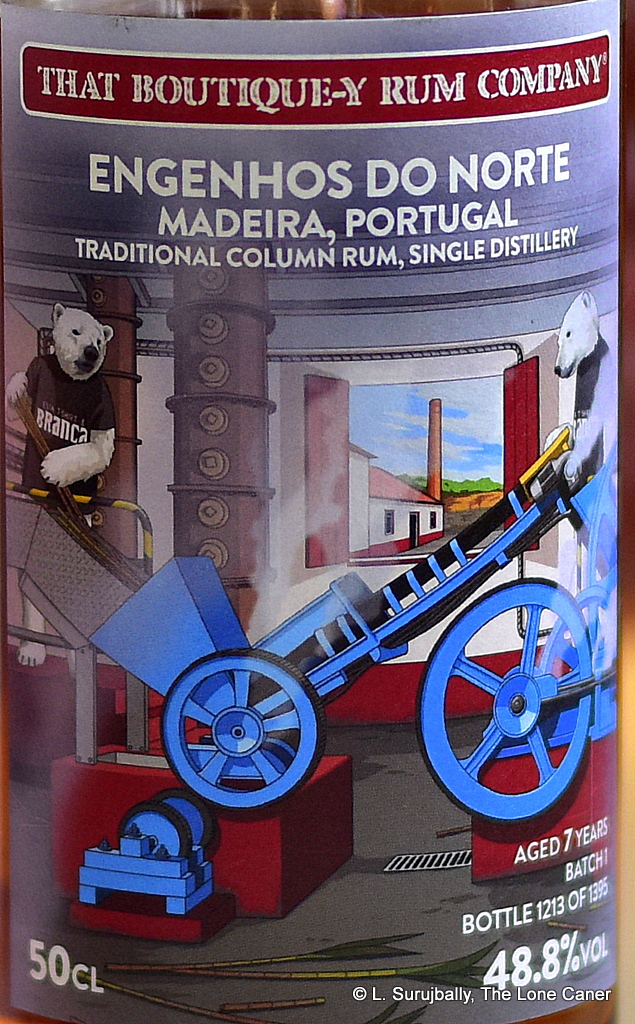 Tasting notes. The nose is nice. At under 50% not too much sharpness, just a good solid heat, redolent of soda, fanta, coca cola and strawberries. There’s a trace of coffee and rye bread, and also a nice fruity background of apples, green grapes, yellow mangoes and kiwi fruit. It develops well and no fault can found with the balance among these disparate elements.
Tasting notes. The nose is nice. At under 50% not too much sharpness, just a good solid heat, redolent of soda, fanta, coca cola and strawberries. There’s a trace of coffee and rye bread, and also a nice fruity background of apples, green grapes, yellow mangoes and kiwi fruit. It develops well and no fault can found with the balance among these disparate elements.
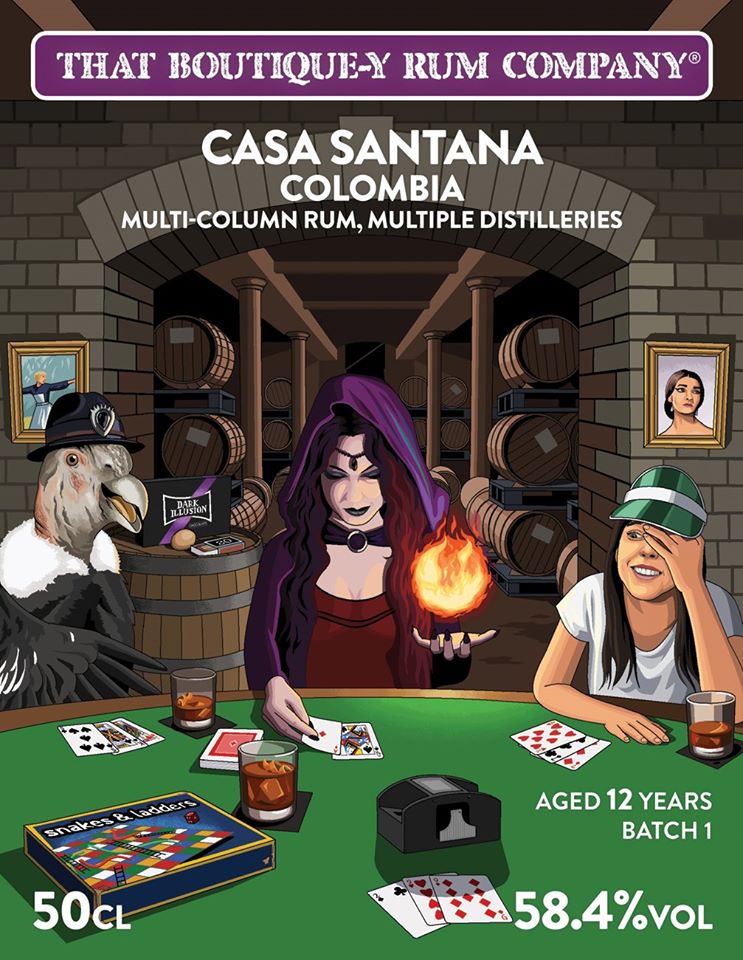

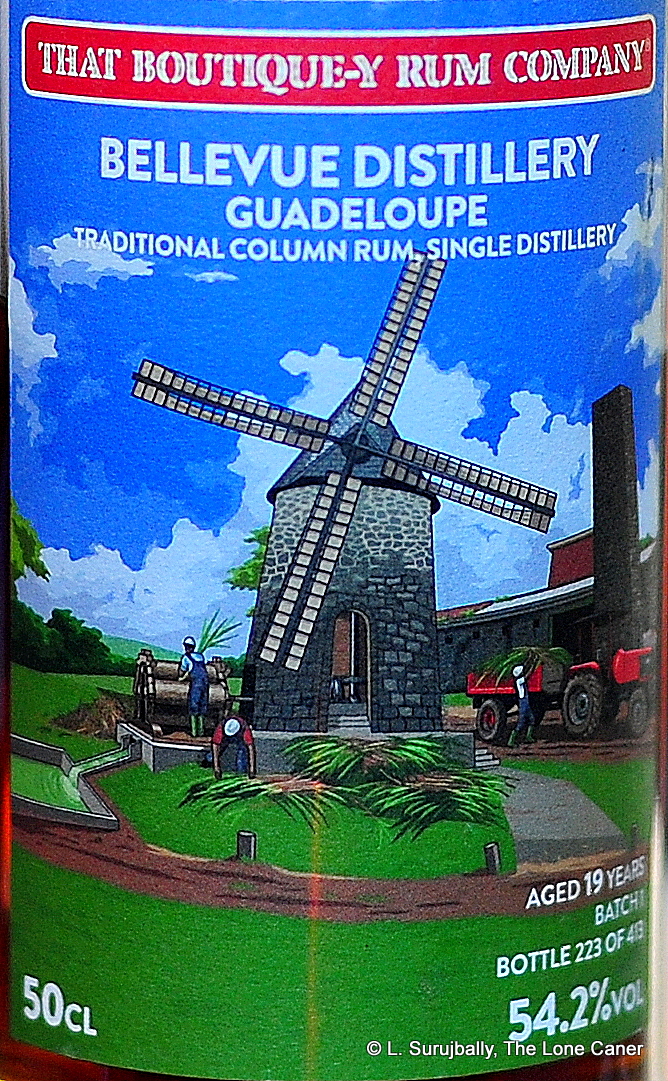 Take this one, which proves that TBRC has a knack for ferreting out good barrels. It’s not often you find a rum that is from the French West Indies aged beyond ten years — Neisson’s been making a splash recently with its 18 YO, you might recall, for that precise reason. To find one that’s a year older from Guadeloupe in the same year is quite a prize and I’ll just mention it’s 54.2%, aged seven years in Guadeloupe and a further twelve in the UK, and outturn is 413 bottles. On stats alone it’s the sort of thing that makes my glass twitch.
Take this one, which proves that TBRC has a knack for ferreting out good barrels. It’s not often you find a rum that is from the French West Indies aged beyond ten years — Neisson’s been making a splash recently with its 18 YO, you might recall, for that precise reason. To find one that’s a year older from Guadeloupe in the same year is quite a prize and I’ll just mention it’s 54.2%, aged seven years in Guadeloupe and a further twelve in the UK, and outturn is 413 bottles. On stats alone it’s the sort of thing that makes my glass twitch.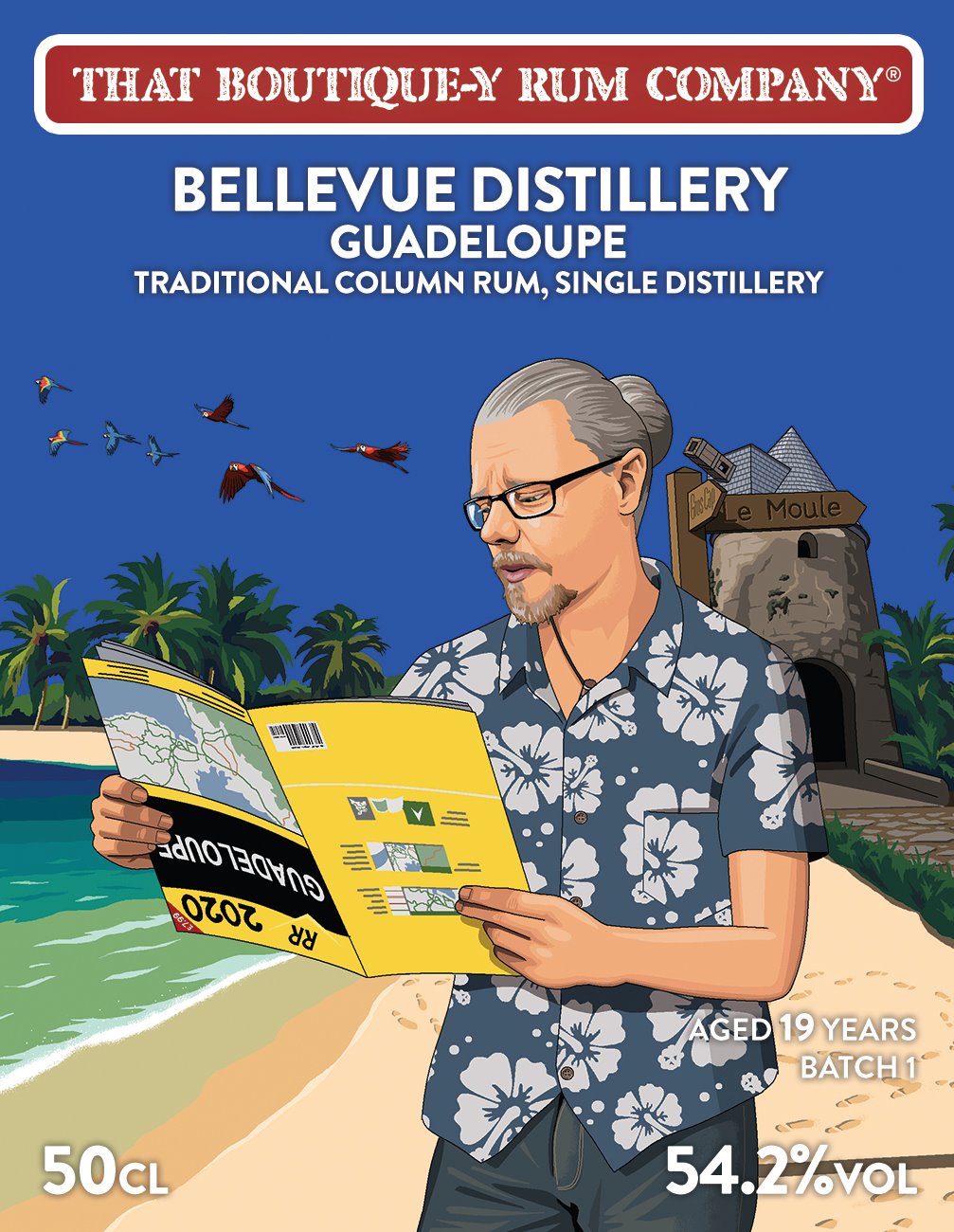 Guadeloupe rums in general lack something of the fierce and stern AOC specificity that so distinguishes Martinique, but they’re close in quality in their own way, they’re always good, and frankly, there’s something about the relative voluptuousness of a Guadeloupe rhum that I’ve always liked. Peter sold me on the quality of the
Guadeloupe rums in general lack something of the fierce and stern AOC specificity that so distinguishes Martinique, but they’re close in quality in their own way, they’re always good, and frankly, there’s something about the relative voluptuousness of a Guadeloupe rhum that I’ve always liked. Peter sold me on the quality of the 